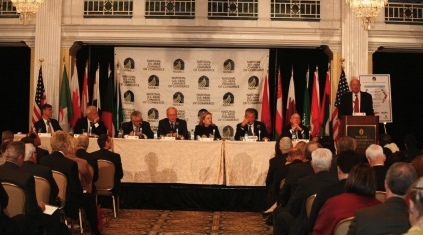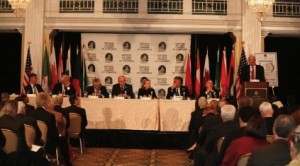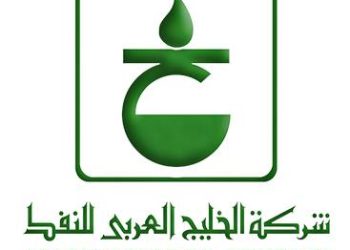March 14: American Ambassador Gene Cretz believes that there . . .[restrict]will be abundant opportunities for American companies to participate in the building of a new Libya.” He was speaking at an “Ambassadors’ Forum” in Washington on Monday at which US ambassadors to 12 Arab states provided insights into the state of US commercial relations with the region, particularly in the context of the Arab Spring.
“Among the challenges that the new government of Libya is wrestling with is how to restart the billions of dollars worth of infrastructure projects that had been in various stages of development at the start of the revolution,” Cretz told an audience of over 300 government and business leader both from the US and the Arab world. The new Libyans authorities, he said, “are currently designing a process to assess the viability of these thousands of contracts and considering how to proceed on new projects as well”.
The event, organised by the National US-Arab Chamber of Commerce (NUSACC), was the first of its kind.
As well as Cretz, panel presentations featured current US Ambassadors from Algeria, Bahrain, Egypt, Iraq, Kuwait, Morocco, Oman, Qatar, Saudi Arabia, Tunisia and the UAE. These 12 account for almost 93 percent of all US exports to the 22 state of the Arab world.
The event also attracted Arab Ambassadors from Algeria, Bahrain, Iraq, Lebanon, Libya, Morocco, Oman, Palestine, Tunisia and the League of Arab States.
David Hamod, president of NUASCC believed that the Ambassadors’ insights and experience provided US companies with “a road map” to do business in the region.
Assessing the importance of the Arab Spring, Thomas Pickering, a former US Under Secretary of State and currently a director with aircraft manufacturers’ Boeing, said: “I think it is here to stay. I think it is very significant. I don’t know how it’s all going to come out and if anybody professes to know so, they probably ought to be elevated to a pedestal or sent to the loony bin… The Arab world has spoken and its people have spoken.”
The three-hour event was divided into two panels. The first panel focused on “Economies in Transition”, the second panel on “Diversifying Away from Hydrocarbons”. In the first, as well as Cretz, panelists included Thomas Krajeski, US ambassador in Bahrain, Anne Patterson (Cairo), James Jeffrey (Baghdad), Samuel Kaplan (Rabat) and Gordon Gray (Tunis).
“Tunisia is not only the birthplace of the Arab Spring, but is also an excellent platform for US businesses interested in expanding to markets in North Africa, Europe, and sub-Saharan Africa,” said Grey.
Patterson stated: “Our governments are committed to a strong partnership and to building solid foundations for public and private sector cooperation. We are confident Egypt has the right mix of demographics and commercial links to the broader world, strategic location and a demonstrated ability to innovate and compete in global markets. With macroeconomic stability, Egypt could be one of the leading emerging markets within a few years. We will do all we can to support Egypt as it works to reach its full economic potential.”
In regards to Algeria, US Ambassador in Algeris, Henry Ensher, said that strong commercial relations were a key element in the strengthening ties between the US and Algeria. “While hydrocarbons will continue to be at the core of our commercial relations and will continue to promote our broad interest in diversity of energy supplies, there are also many opportunities in such areas as high technology, pharmaceuticals and agribusiness, in which U.S. expertise and quality are strongly respected in Algeria. U.S. Embassy personnel work every day to support our broad commercial ties, helping to close $3.61 billion in deals over the last eight years.”
NUSACC said the US business community’s strong interest in the event reflected the growing commercial relationship between the United States and the Arab world. It added that, according to data it had analyzed, 2011 was a “surprisingly good year” for US exports to the Arab world.
“Based on initial 2011 data and revised 2010 figures provided by the US Census Bureau, US goods exports to the Arab world increased from $48.77 billion in 2010 to $56.18 billion in 2011, an increase of 15.2 percent and the highest single-year sales volume ever.”
According to the council, the Arab Spring had had an effect on investment and exports to certain countries in the region, but “demand for US goods and services remains strong”.
It says there are four key drivers in the US-Arab commercial relationship — energy development (upstream and downstream), infrastructure development, consumerism (including purchases by youth, who constitute 70 percent of the region’s population), and defense & security.
[/restrict]









